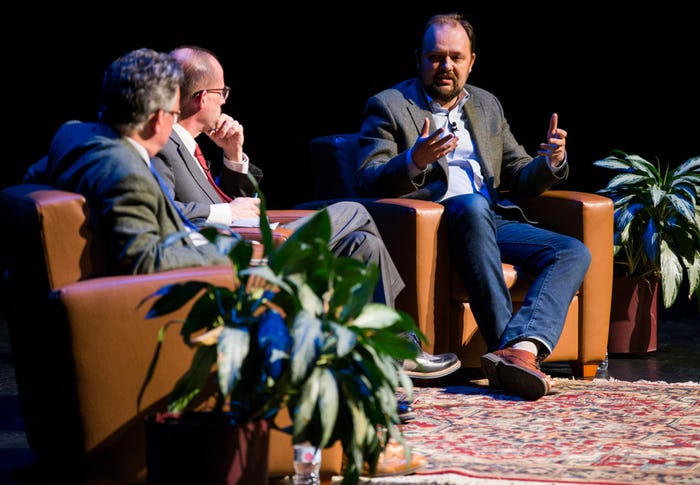After Stumble in South America, What Does Pope Francis" Papacy Mean for Catholics and the World?
By Sara Coello
Ivereigh's take on the pope is a gentler one, invoking images of Jesus pardoning believers who departed from Jewish law in the New Testament. To him, Francis' attention to developing countries and underprivileged populations is a necessary redirection of Catholic evangelization. "He'll be remembered as a pope who in many ways restored the balance within Catholicism," Ivereigh said. "[He is] the first of a new era in the Church, which is obviously a global papacy." The conversation underlined a dilemma even for secular people who have attached to Pope Francis' apparent loosening of Catholic dogma — even as his proclamations have raised concerns among traditional Catholics. As a growing population around the world begin to see their relationship to Catholicism as more cultural than doctrinal, the pope is reawakening a 2,000-year-old question: Which doctrines must a faithful Catholic obey? He is also raising questions about what the focus of the Catholic Church, with some 1.2 billion members, should be. Past popes have "adopted an agenda and a purpose that is most strongly associated with the North Catholic Church ... that has seemed of minimal relevance in other parts of the Catholic world," Douthat said. Francis' background and emphasis, meanwhile, have focused on issues faced by developing nations. Amoris Laetitia followed requests from Francis' predecessor Pope John Paul II that some divorced people should be treated less severely — particularly mothers who were left by their husbands and had no career experience. The effect was an increase in annulments, which in Catholic doctrine cancels a marriage's validity. But some conservative Catholics see this as a dangerous sign of lowered standards for the sanctity of marriage and for consequences against sin in general. "That indicates that the pope has, if not mixed intentions, some uncertainty," Douthat said. "[But] however murky and ambiguous the change, the change is intended." The idea for the lecture came from Dr. Daniel Burns, a politics professor at the University of Dallas. As students at the small Catholic school study the theological, historical and political impact of the papacy, it seemed natural to Burns that a debate regarding the current pope be offered to the students. The two speakers were brought together by the University of Dallas' Eugene McDermott Lectureship, an annual weeklong series that brings experts to the local and university community. Francis' young papacy has raised crucial questions about the Catholic church, the speakers agreed. Resolution of those questions will be difficult and complex. "None of this will be resolved without some future ecumenical council," Douthat said.
|
.
Any original material on these pages is copyright © BishopAccountability.org 2004. Reproduce freely with attribution.
